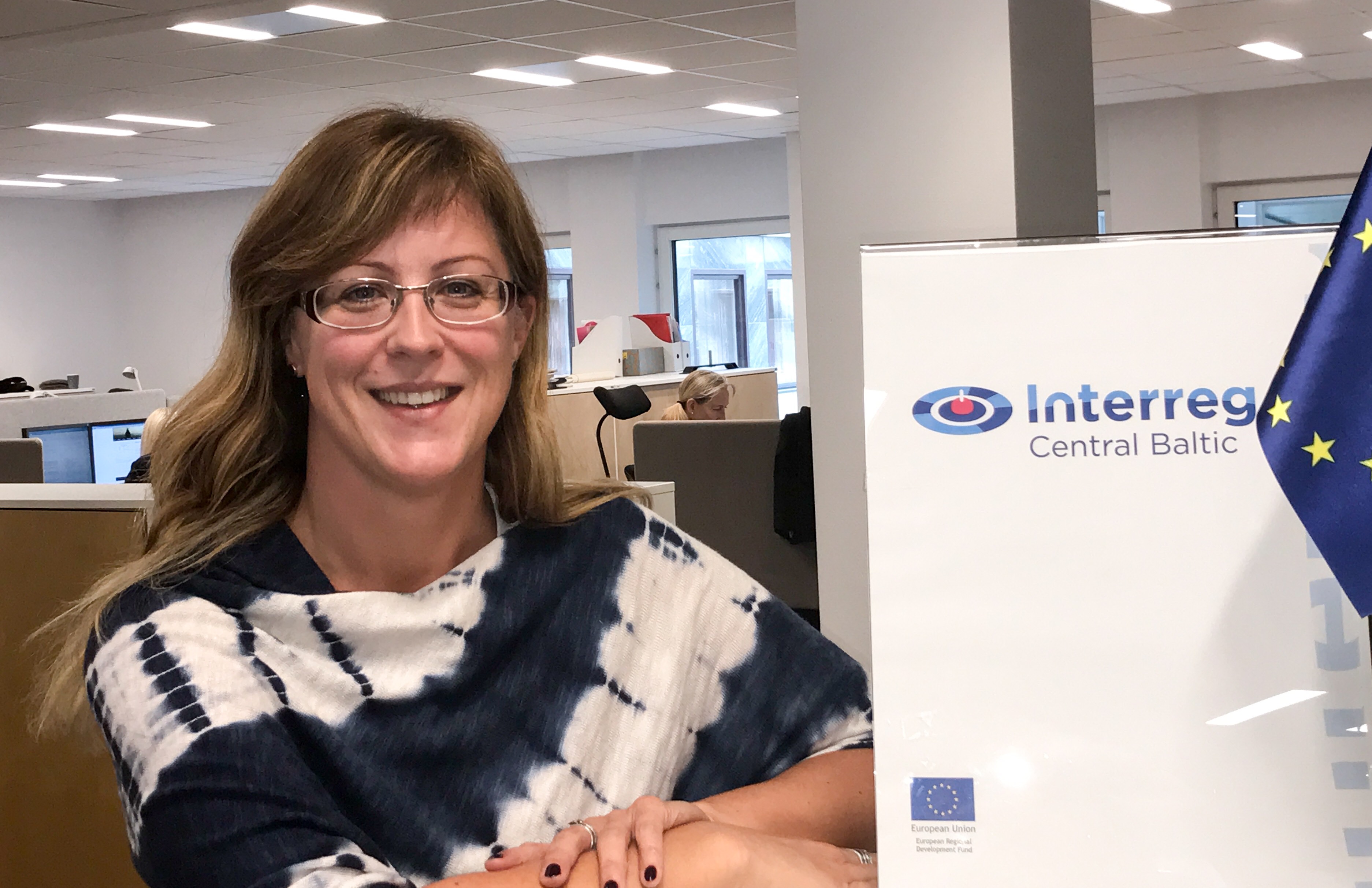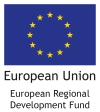In this mini-series, we introduce our national Contact Points from around the programme area. The national Contact Points are the link between the programme and the regions. They inform about the funding opportunities and provide first information to potential applicants. Contact Points also help with partner search and matchmaking. In addition, they follow projects closely to share/spread project results and communicate the benefits of cross-border cooperation.
Part 1: Our national Contact Point on Åland - Ester Laurell
Part 2: Our national Contact Point in Finland - Jaakko Ranta
Part 3: Our national Contact Point in Latvia - Ilze Legzdina
Part 4: Our national Contact Point in Sweden South - Annika Holmström
Part 5: Our national Contact Point in Estonia - Johanna Joosep
How did you end up working with Central Baltic?

(2018)
I had decided to move back to my home region Stockholm and therefore I asked the County Administrative Board of Stockholm if they had any vacancies that could suit me. During that time I worked as a project
manager for an Interreg project financed by the Baltic Sea Region program at the County Administrative Board of Dalarna, so I had good knowledge of how Interreg works. In addition, I have a solid background as
journalist and communicator that also suits this mission. Therefore, I applied as a contact point for the Central Baltic program.
What does a typical working day look like?
I always start my working day by reading and answering emails. We contact points are geographically far apart, because of that many of our contacts take place via email and Skype meetings. I also devote much of my time following the work of Central Baltic projects via internet and social media in order to spread information about the work and results in social channels and newsletters.
What are you currently working with?
Now, most of my work is about the fourth call of project funding. This means that I get many questions to answer from organizations and authorities about the possibility of seeking money for new project ideas. I also make presentations at different network meetings in the Swedish regions about how and when it is possible to apply for funds in the fourth call. Above that, I and my colleague Annika Holmström, who also is contact point for Sweden, are now planning a writing cottage to help applicants to understand how to make a good application.
What is the best thing about your work?
I find it very interesting to see how much engagement there is in the projects work and what positive results it’s generating. It is very satisfying to see that EU money is beneficial in society. That’s something I want to help people to understand by spreading information about the results of Central Baltic projects.
Part 1: Our national Contact Point on Åland - Ester Laurell
Part 2: Our national Contact Point in Finland - Jaakko Ranta
Part 3: Our national Contact Point in Latvia - Ilze Legzdina
Part 4: Our national Contact Point in Sweden South - Annika Holmström
Part 5: Our national Contact Point in Estonia - Johanna Joosep
How did you end up working with Central Baltic?
(2018)
I had decided to move back to my home region Stockholm and therefore I asked the County Administrative Board of Stockholm if they had any vacancies that could suit me. During that time I worked as a project
manager for an Interreg project financed by the Baltic Sea Region program at the County Administrative Board of Dalarna, so I had good knowledge of how Interreg works. In addition, I have a solid background as
journalist and communicator that also suits this mission. Therefore, I applied as a contact point for the Central Baltic program.
What does a typical working day look like?
I always start my working day by reading and answering emails. We contact points are geographically far apart, because of that many of our contacts take place via email and Skype meetings. I also devote much of my time following the work of Central Baltic projects via internet and social media in order to spread information about the work and results in social channels and newsletters.
What are you currently working with?
Now, most of my work is about the fourth call of project funding. This means that I get many questions to answer from organizations and authorities about the possibility of seeking money for new project ideas. I also make presentations at different network meetings in the Swedish regions about how and when it is possible to apply for funds in the fourth call. Above that, I and my colleague Annika Holmström, who also is contact point for Sweden, are now planning a writing cottage to help applicants to understand how to make a good application.
What is the best thing about your work?
I find it very interesting to see how much engagement there is in the projects work and what positive results it’s generating. It is very satisfying to see that EU money is beneficial in society. That’s something I want to help people to understand by spreading information about the results of Central Baltic projects.


